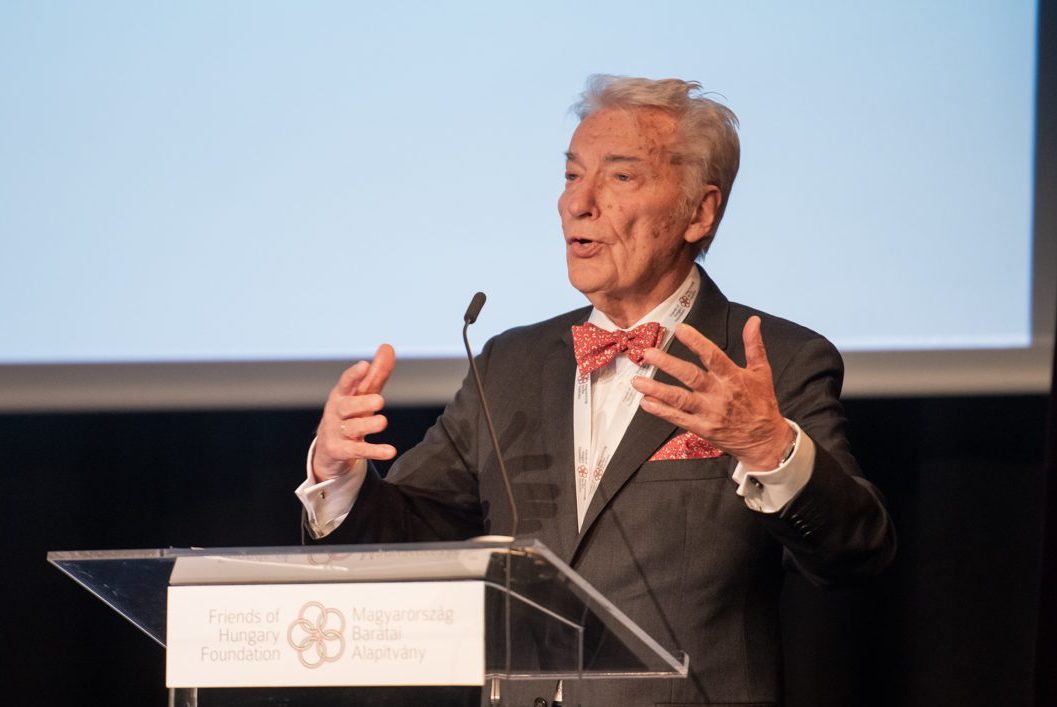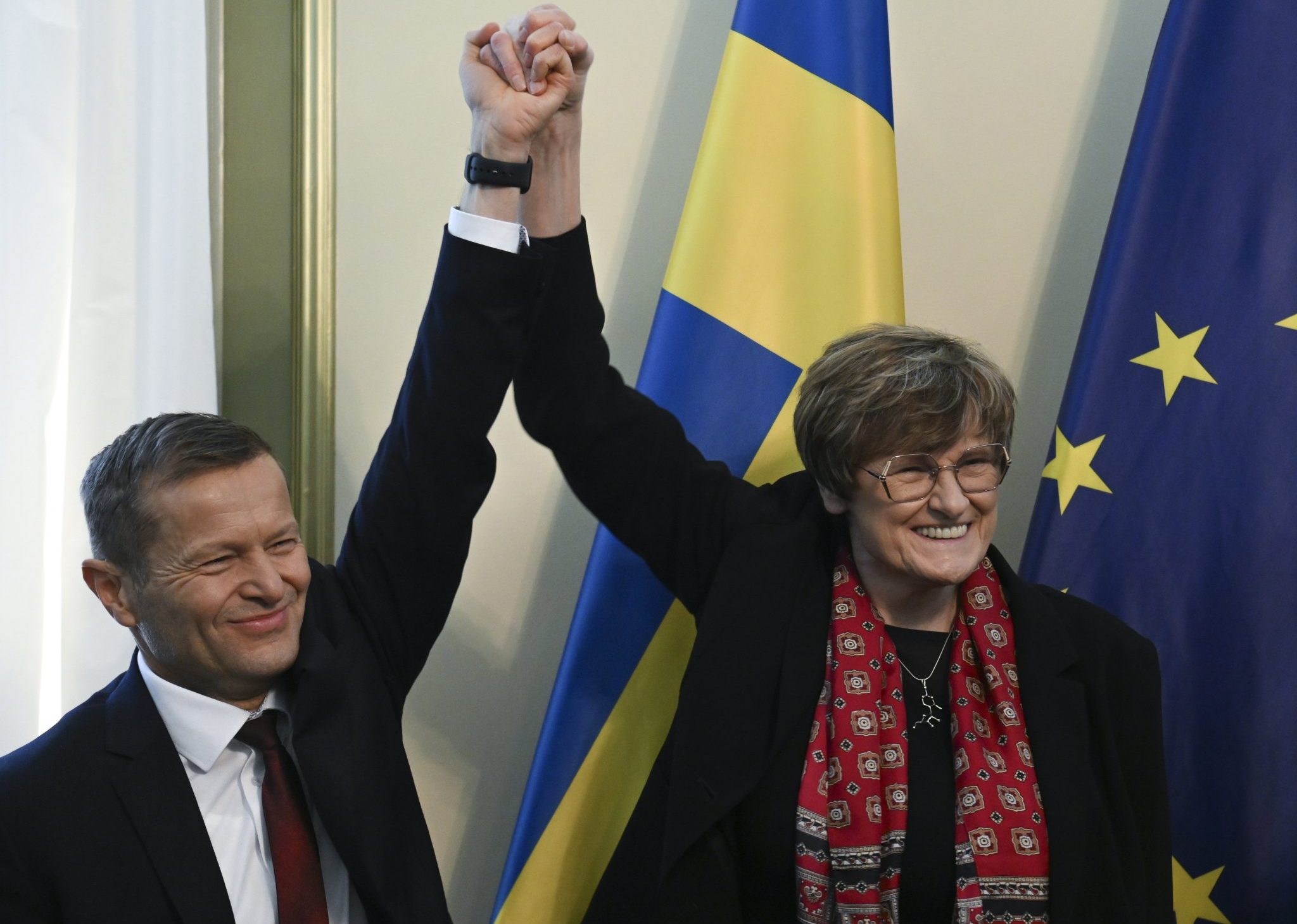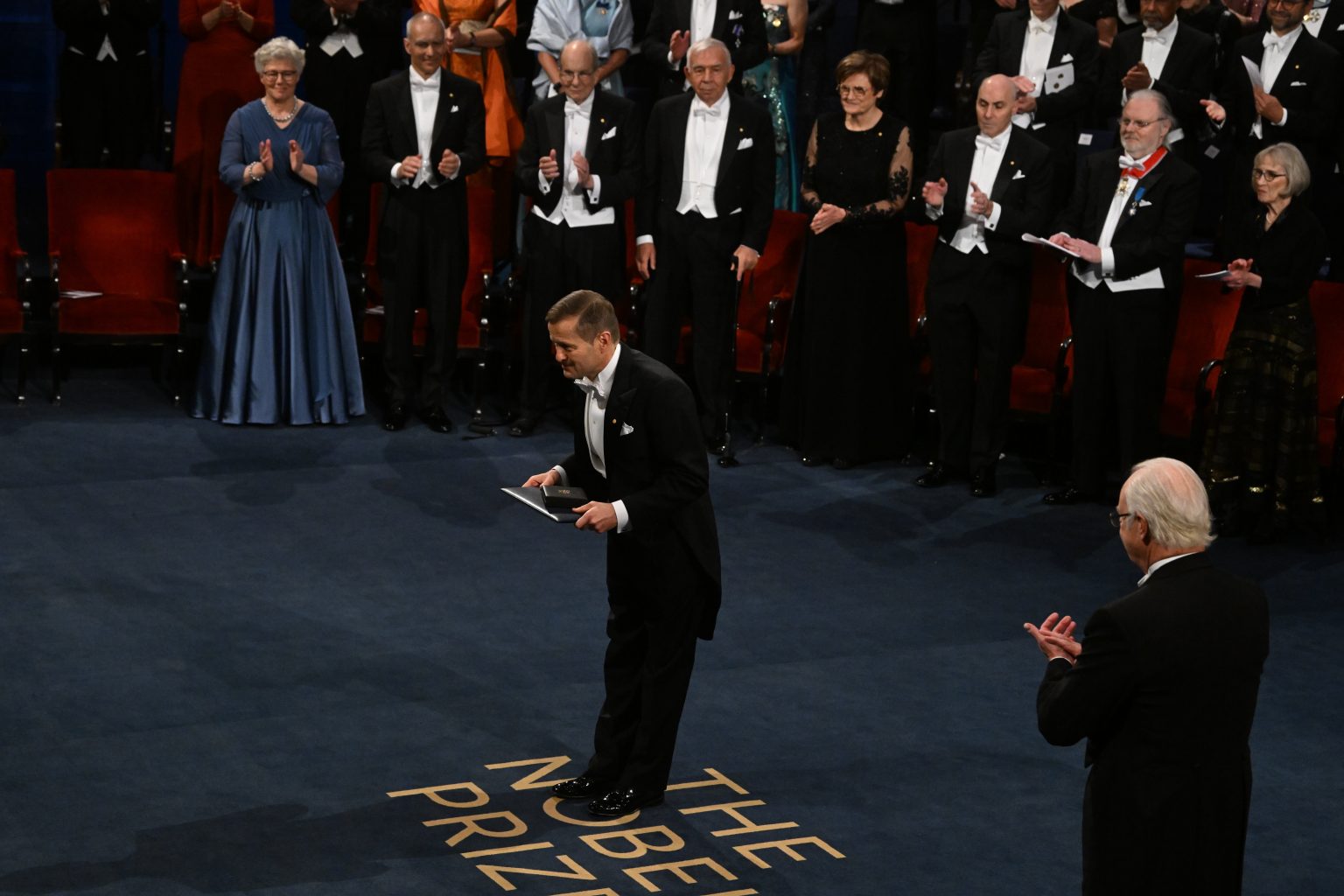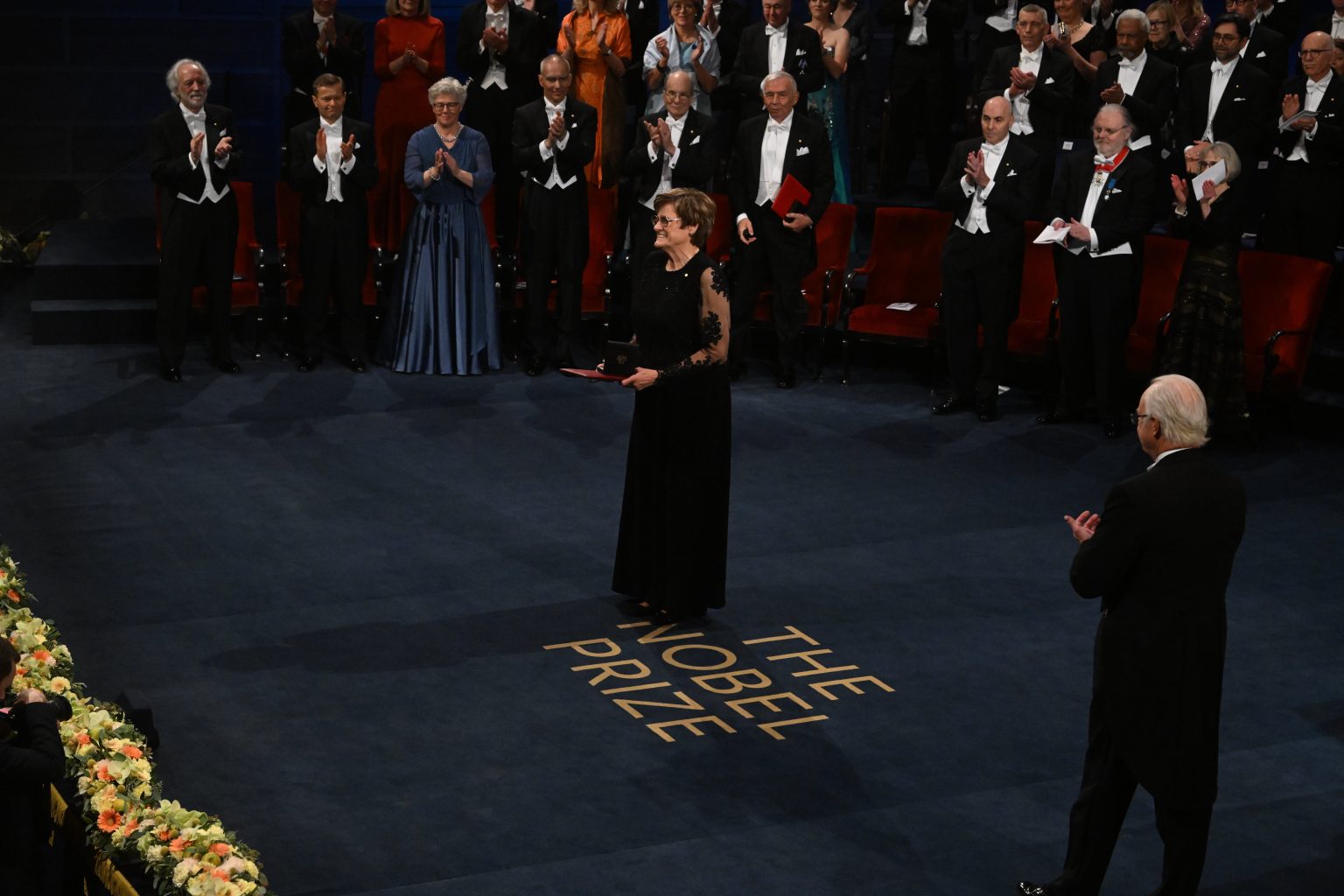
Former MTA President Professor E. Sylvester Vizi's Message on Ferenc Krausz and Katalin Karikó's Nobel Prize.Continue reading

Biochemist Katalin Karikó and physicist Ferenc Krausz were awarded the Nobel Prize in Stockholm on Sunday. The most prestigious international award in the world of science was presented to the winners by King Carl XVI Gustaf of Sweden at a ceremony in the Stockholm Concert Hall.
On behalf of the Nobel Foundation, Astrid Söderbergh Widding, Chair of the Board of Trustees, welcomed the winners. In her speech, she emphasized that “Alfred Nobel’s message to us is very clear: he believed that commitment to literature, science and peace would move the world forward.”

Ferenc Krausz (in the center) at the award ceremony in Stockholm (Photo: MTI/Szilárd Koszticsák)
Ferenc Krausz received the Nobel Prize in Physics together with the two French scientists, Pierre Agostini and Anne L’Huillier,
for experimental methods that generate attosecond pulses of light for the study of electron dynamics in matter.“
“This year’s Nobel Prize in Physics focuses on the tiny details, on atomic physics, on the attosecond,” said Eva Olsson, Professor at Chalmers University of Technology, in her speech to the Nobel Prize winners in Physics. She explained that “the universe is huge, but it is determined by tiny details that we cannot always see with our five senses. These tiny details have an impact on our lives and offer us a great opportunity to expand our knowledge.”
Katalin Karikó received the Nobel Prize in Physiology or Medicine for her discoveries that paved the way for the development of mRNA-based vaccines, that she shares with the American Drew Weissman.

Photo via Katalin Karikó (in the center) at the award ceremony in Stockholm (Photo: MTI/Szilárd Koszticsák)
Gunilla Karlsson Hedestam, professor at Karolinska Institute, said in her speech for the prizewinners that Katalin Karikó had discovered the need to observe how cells react to different forms of RNA. The researchers published their most important work in 2005, in which they showed that mRNA triggers an immune response in the body, but that this can be bypassed.
This ushered in a new era, and thanks to this method they were able to develop a vaccine that saved millions of lives 15 years later during the COVID pandemic,
she explained.
The professor also emphasized that this method helped to speed up the production of the vaccine.
The ceremony was attended by 1,560 invited guests, including family members of the laureates, former laureates, members of the royal family, representatives of the awarding institutions, members of the Swedish government and parliament and representatives of the diplomatic corps.
Via Ungarn Heute, Featured image via MTI/Szilárd Koszticsák